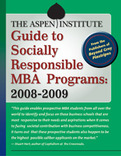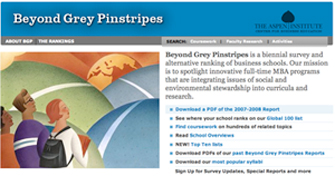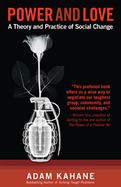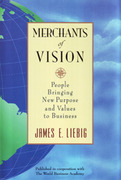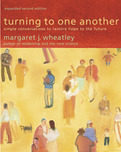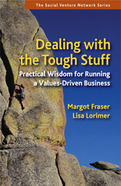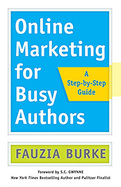2010
-
A new approach, proven in the field, for making progress on our most important and difficult collective challenges
-
Based on Kahanes first-hand experiences working with teams of business, government and civil society leaders around the world
-
Profound, personal and practical
The two main ways that people try to solve their toughest group, community and societal problems are fundamentally flawed. They either push for what they want at all costsin its most extreme form this means waror try to completely avoid conflict, sweeping problems under the rug in the name of a superficial peace. But there is a better way: combining these two seemingly contradictory approaches.
Adam Kahane argues that each is a reflection of two distinct, fundamental drives: power, the single-minded desire to achieve ones solitary purpose; and love, the drive towards unity. They are inextricable parts of human nature, so to achieve lasting change you have to able to work fluidly with both. In fact, each needs the other. As Martin Luther King put it, Power without love is reckless and abusive, and love without power is sentimental and anemic.
Kahane delves deeply in the dual nature of power and love, exploring their complex and intricate interplay. With disarming honesty he relates how, through trial and error, he learned to balance between them, shifting from one to the other as though learning to walkat first falling, then stumbling forward, and finally moving purposefully toward true, lasting reconciliation and progress.
For the last twenty years Kahane has worked around the world on a variety of challenges: economic development, food security, health care, judicial reform, peace making, climate change. He has worked with diverse teams of leadersexecutives and politicians, generals and guerillas, civil servants and trade unionists, community activists and United Nations officials, clergy and artists. He has seen, up close and personal, examples of inspiring progress and terrifying regress. Power and Love reports what he has learned from these hard-won experiences.
1994
In our time of dramatic worldwide change, can business leaders meet the challenges of the marketplace and the needs of people, communities, and the planet? Merchants of Vision profiles 40 business leaders who are successfully working to do just that.
James Liebig interviewed dozens of business women and men in 70 organizations from 14 countries. He found executives, entrepreneurs, CEOs, and consultants who recognize business's pervasive global influence and have found ways to use that influence to affect positive change in people's lives and meaningful growth in their businesses. In Merchants of Vision they share their beliefs, experiences, and creative actions.
Visionary yet down-to-earth, these real-life portraits provide viable business strategies for:
o enhancing social equity,
o protecting the natural environment,
o fostering human creativity,
o serving higher purposes, including spiritual, service, and community values,
o behaving ethically,
o providing transformational leadership.
Representing a variety of business enterprises in the United States, Latin America, Europe, and Asia, innovators profiled include, for example:
o Elliot Hoffman, president of Just Desserts in San Francisco;
o Jacqueline Cambata, president of Phoenix Chemical in Virginia;
o Mara Adela Palcos, director of Rio Abierto Institute in Buenos Aires;
o Marjorie Kelly, editor and publisher of Business Ethics magazine;
o Eckart J. Wintzen, president of BSO/ORIGIN, computer custom software services in The Netherlands;
o Joe Jaworski, head, Business Environment Section, Shell International Petroleum Co. Ltd., in London, England;
o Jagdish Parikh, managing director, Lemuir Group of Companies in Bombay, India;
o Carol Frenier, president, The Advantage Group, Inc., specialty advertising in Vermont;
o Meryem Le Saget, directeur, Institut de L'Expansion, Group Expansion, business seminars and conferences in Paris, France;
o Heini Lippuner, chairman, executive committee, Ciba-Geigy Limited, chemical manufacturing in Basel, Switzerland;
o Robert V. Adams, president of Xerox Technology Ventures in California.
These are people of action and integrity who sustain themselves with the creative friction between their idealism and their knowledge of the real world. Their experiences-addressing issues of personal responsibility and product quality, expanding markets and shrinking natural resources, technological advancement and cultural preservation-reveal ways businesses must adapt to survive, thrive, innovate, and lead.
- Published in cooperation with the World Business Academy, an international network of progressive business leaders committed to using their business expertise to make a positive difference in the world
- Practical and inspiring portraits of 40 business men and women "walking their talk" by integrating their ideals in the world of commerce
• By the author of Leadership and the New Science (over 250,000 copies sold)
• Shows how the simple but long neglected act of conversation-of thoughtfully talking and listening to one another-has the power to change lives
• Offers insightful advice on how to conduct conversations that will help us to genuinely connect with each other and restore hope to our individual lives
• Provides ten "conversation starters" to provoke rich and meaningful exchanges
Offers personal insights and advice from of some of the most successful socially conscious entrepreneurs in the country
Features dozens of true stories revealing what it’s really like to run a values-driven business—the good, the bad and the ugly
Includes tested tools, techniques and coping strategies for overcoming common and not-so-common challenges
Your business plan is only going to get you so far. When you’re actually running a values-driven business problems come up that you never could have anticipated. And as a mission-driven organization you face issues your more conventional colleagues never have to grapple with. The whole experience can be incredibly isolating and draining.
Margot Fraser and Lisa Lorimer have been there, and they’re here to help. Together with five of their colleagues—including Stonyfield Yogurt founder Gary Hirshberg and former Ms. Foundation president Marie C. Wilson—they offer the kinds of personal insights and seasoned advice you just can’t get in business school. It’s like having a coaching session with some of the nation’s top socially conscious entrepreneurs.
Each chapter of Dealing with the Tough Stuff tackles a particular challenge. How open and honest can you really be with your employees and still run an efficient business? At what point do you seek outside expertise? What do you do when things go terribly wrong? When is it time to leave? The authors and the members of their “advisory board” share their experiences—not just what worked, but sometimes what spectacularly didn’t. Some of these stories are harrowing: a worker getting killed by factory equipment, a supplier embezzling funds, a false accusation of intellectual property theft. Others are simply day-to-day conundrums: meeting payroll when you’re always in debt, deciding when and how to expand in a responsible way, balancing business needs with your commitment to the triple bottom line. At the end of each chapter, Lorimer and Frasier draw on the stories to offer practical "survival suggestions" that can guide readers through similar situations.
This is a book that readers can look to for affirmation, hope and tools. Others have been through what you’re going through, if not worse. They made it and so can you—because they’re going to show you how they did it. No book can cover every challenge that might arise, but if you learn from the attitudes, techniques and coping mechanisms these seasoned leaders offer, you’ll get through the tough stuff with your sanity and your business intact.
• Offers personal insights and advice from of some of the most successful socially conscious entrepreneurs in the country
• Features dozens of true stories revealing what it’s really like to run a values-driven business—the good, the bad and the ugly
• Includes tested tools, techniques and coping strategies for overcoming common and not-so-common challenges
Your business plan is only going to get you so far. When you’re actually running a values-driven business problems come up that you never could have anticipated. And as a mission-driven organization you face issues your more conventional colleagues never have to grapple with. The whole experience can be incredibly isolating and draining.
Margot Fraser and Lisa Lorimer have been there, and they’re here to help. Together with five of their colleagues—including Stonyfield Yogurt founder Gary Hirshberg and former Ms. Foundation president Marie C. Wilson—they offer the kinds of personal insights and seasoned advice you just can’t get in business school. It’s like having a coaching session with some of the nation’s top socially conscious entrepreneurs.
Each chapter of Dealing with the Tough Stuff tackles a particular challenge. How open and honest can you really be with your employees and still run an efficient business? At what point do you seek outside expertise? What do you do when things go terribly wrong? When is it time to leave? The authors and the members of their “advisory board” share their experiences—not just what worked, but sometimes what spectacularly didn’t. Some of these stories are harrowing: a worker getting killed by factory equipment, a supplier embezzling funds, a false accusation of intellectual property theft. Others are simply day-to-day conundrums: meeting payroll when you’re always in debt, deciding when and how to expand in a responsible way, balancing business needs with your commitment to the triple bottom line. At the end of each chapter, Lorimer and Frasier draw on the stories to offer practical "survival suggestions" that can guide readers through similar situations.
This is a book that readers can look to for affirmation, hope and tools. Others have been through what you’re going through, if not worse. They made it and so can you—because they’re going to show you how they did it. No book can cover every challenge that might arise, but if you learn from the attitudes, techniques and coping mechanisms these seasoned leaders offer, you’ll get through the tough stuff with your sanity and your business intact.
Writing It Is Only the Beginning
There has truly never been a better time to be an author. For the first time, authors have direct access to the public via the Internet—and can create a community eagerly awaiting their book. But where do new authors start? How do they sort through the dizzying range of online options? Where should they spend their time online and what should they be doing?
Enter Fauzia Burke, a digital book marketing pioneer and friend of overwhelmed writers everywhere. She takes authors step-by-step through the process of identifying their unique personal brand, defining their audience, clarifying their aspirations and goals, and setting priorities. She offers advice on designing a successful website, building a mailing list of superfans, blogging, creating an engagement strategy for social media, and more. By following Burke's expert advice, authors can conquer the Internet and still get their next manuscript in on time.


